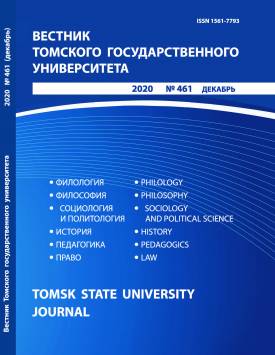Crime Provocation, Its Fiction and Presumption: Theory, Law, the Legal Position of the European Court of Human Rights
The authors argue that the theory of criminal law, the current Russian criminal law and the decisions of the European Court of Human Rights have different understandings of both the content of crime provocation and its criminal law significance. They prove that crime provocation as a criminal act can be considered only within the framework of the institution of complicity in a crime as incitement with a special purpose - to bring a person inclined to commit a crime to criminal liability. In the absence of signs of complicity, actions that to some extent created the conditions for committing a crime do not have a criminal law significance, and therefore cannot be recognized as crime provocation. The authors distinguish two types of crime provocation as a legal fact and act: 1) committed by law enforcement officials or other persons on their behalf; 2) committed by persons who are not law enforcement officers and do not act on their behalf. With regard to crime provocation committed by law enforcement officials or other persons on their behalf, presumption is in effect, according to the ECHR's legal position. In this context, the presumption of crime provocation is that investigation bodies are required to prove that there was no provocation. The absence of proofs, as well as the ignoring of searching for them or the dismissal of the defendant's claim about the commission of provocative acts against them by national courts, allows the ECHR to recognize the actions of law enforcement officials as provocative. This type of provocation is a circumstance that excludes the criminal liability of the person who committed a crime as a result of provocative actions of law enforcement officials or other persons acting on their behalf against this person. The legal basis for excluding the possibility of making the person liable is the violation by the authorities of the person's right to a fair trial, as provided for in Article 6 of the Convention for the Protection of Human Rights and Fundamental Freedoms, not the absence of a corpus delicti in this person's actions. The authors also emphasize that the alleged crime provocation cannot be considered within the framework of the institution of complicity in a crime. Crime provocation committed by persons who are not law enforcement officers and do not act on their behalf is either incitement to a crime, or is expressed in the commission of an act under Article 304 of the Criminal Code of the Russian Federation. This type of provocation does not affect the qualification of the actions of the provoked person.
Keywords
crime provocation, police provocation, complicity in crime, circumstances precluding criminalityAuthors
| Name | Organization | |
| Dmitrenko Andrey P. | Moscow University of the Ministry of Internal Affairs of the Russian Federation named after | stvkup@yandex.ru |
| Kadnikov Nikolay G. | Moscow University of the Ministry of Internal Affairs of the Russian Federation named after | krim-pravo@yandex.ru |
| Russkevich Evgeniy A. | Moscow University of the Ministry of Internal Affairs of the Russian Federation named after | russkevich@mail.ru |
References

Crime Provocation, Its Fiction and Presumption: Theory, Law, the Legal Position of the European Court of Human Rights | Vestnik Tomskogo gosudarstvennogo universiteta – Tomsk State University Journal. 2020. № 461. DOI: 10.17223/15617793/461/26
